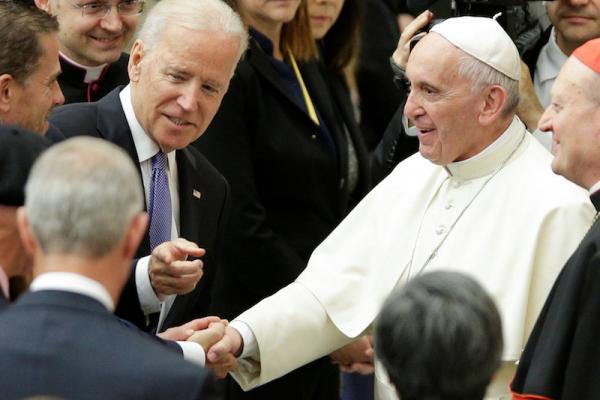Apr 29, 2016
It may be a sign of the shifting dynamics in the Catholic Church that Biden was welcomed on April 29 to the Vatican to address a church-sponsored conference on cutting-edge therapies to treat diseases such as cancer, and he was warmly greeted by the local bishop of Rome — aka Pope Francis.
Biden in turn praised the pontiff, and noted that the pope met with him and his family during Francis’ visit to the U.S. last September and “provided us with more comfort” after the death of Biden’s son Beau, who succumbed to brain cancer nearly a year ago.
Read the Full Article

Already a subscriber? Login
